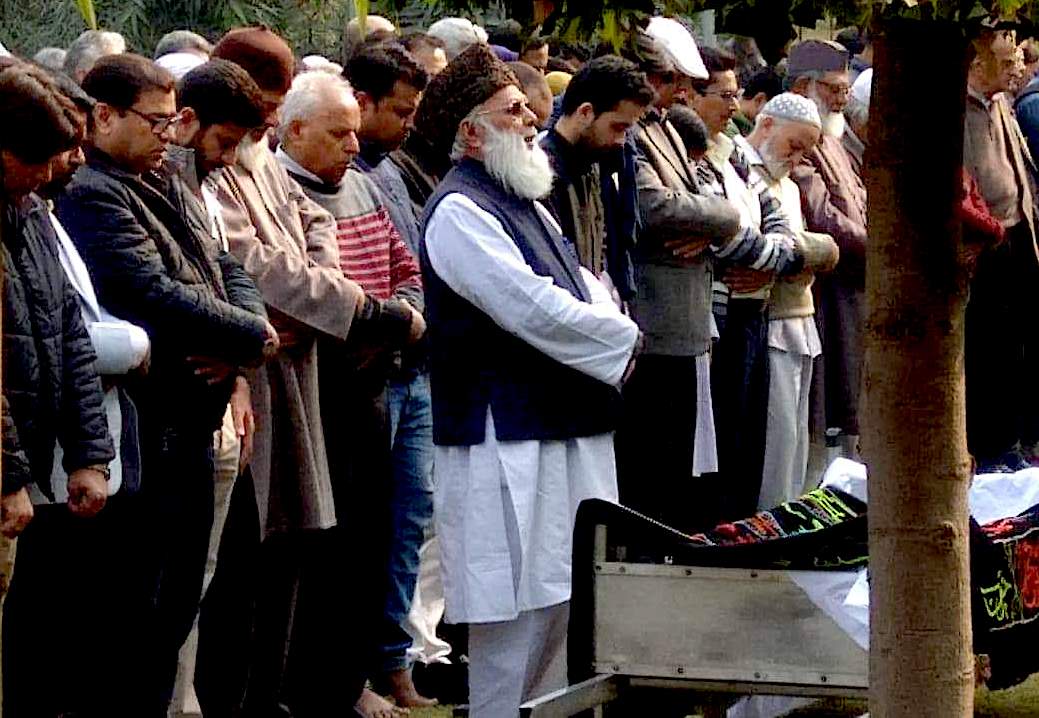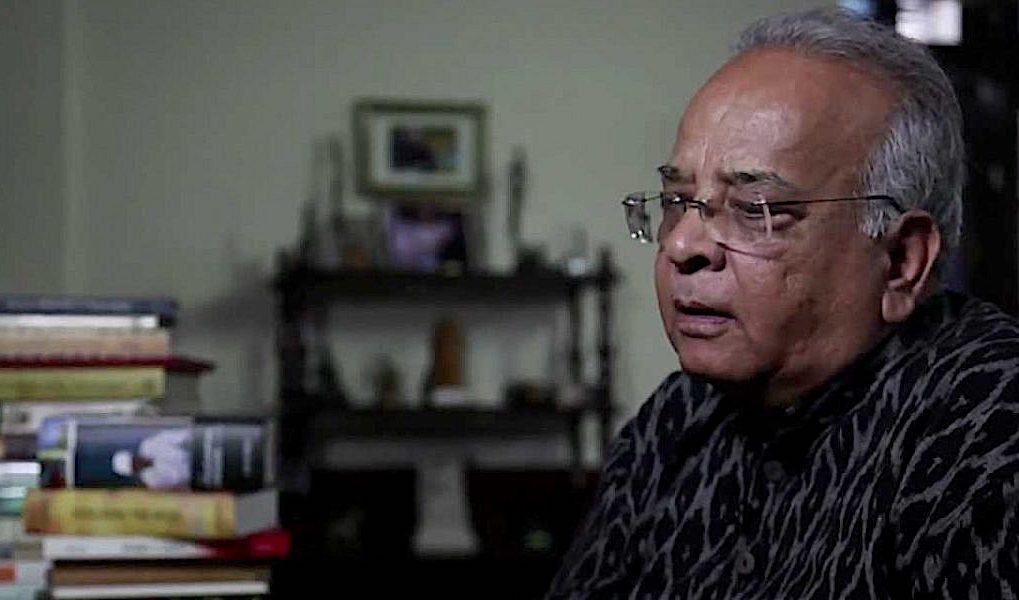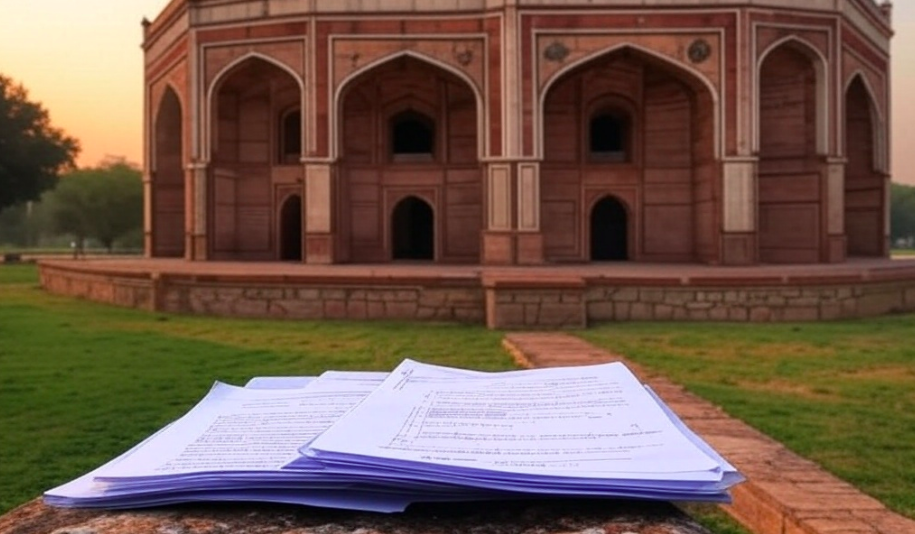Prof Mushirul Hasan influenced and shaped generations of students in different ways than we would ever acknowledge
By M Reyaz
I woke up on Monday morning to the sad news of the demise of 71-year old Prof. Mushirul Hasan, noted historian and former Vice Chancellor of Delhi based Jamia Millia Islamia.
As I sat to write this obituary in the afternoon, I have yet not completely grappled with the fact that Mushir Saheb is no more in this world. He was suffering from multiple illnesses since his fateful car accident in November 2014 on his way to participate in a school function in Mewat. Although he survived the accident, since then his public appearance and academic work came to near halt.
Progress in Jamia under Prof Hasan
I joined Jamia as an undergraduate student in 2005, about a year after he became the Vice Chancellor and as a student witnessed the rapid changes he spearheaded. He was an academician first and the foremost and his calm demeanour spread positivity around him.
We would often see him walking in the campus to discuss matters with his colleagues or for inspections of canteens, or to check if classes are happening regularly, or during night-raids in hostels to check if extra boys are not living illegally.
Before his tenure, Jamia was known to outsiders more as a madrasa, at worst, or a college, most famous for mass communication and few other departments, at best. Research became a big area of thrust under him as he pioneered the establishment of a number of centers, including on international studies, peace and conflict studies, development studies, dalit and minority studies, media governance, etc. He also played major role in establishment of interdisciplinary centers in basic science, theoretical physics, etc. among others.
How many universities in India, or the world, can boost of having blocks, buildings, hostels, gates, gardens and research centers named after as diverse personalities as Al-Biruni, Al-Farabi, Mahatma Gandhi, Nelson Mandela, Noam Chomsky, Edward Said, Yasser Arafat, Jawaharlal Nehru, K.R. Narayanan, Sarojini Naidu, Ramanujan, Maulana Mohammad Ali Jauhar, Fathima Zehera, Guru Nanak, Qurratulain Hyder, Sadat Hasan Manto, M.F. Hussain, Fidel Castro, Dr Zakir Hussain, Maulana Abul Kalam Azad, Arjun Singh, et al?
His colleagues and students in campus often jokingly called him ‘Shah-Jahan of Jamia’ for the seriousness with which he undertook the beautification drive.
Jamia became more vibrant academically ever since, with international seminars and distinguished list of speakers who frequented the campus on regular basis. Several MoUs were signed with a number of foreign universities and governments, thus leading to exchanges of several faculty members and students. About 200 foreign students from several countries give the university cosmopolitan look.
Even extra curricular activities, including theatre, street plays, annual university magazines, etc. were encouraged. He also established the M.F. Hussain Art Gallery and had plans to build a History Museum dedicated to the freedom struggle.
In fact, I stayed in the campus for over a decade to do PhD after post-graduations, to see the fruits of his hard work before joining Aliah University as a faculty member. I stayed in campus long enough to not just witness his work, but to compare and contrast his tenure with others who followed him, most notably his successor and former bureaucrat Najeeb Jung, who later went on to become the Lieutenant Governor of Delhi NCT.
The openness he encouraged was in stark contrast to his successor who almost throttled the extracurricular activities and students’ activism in the campus; while Jung himself played Emperor Akbar in a drama and invited Sitaram Yechury to give lecture on students’ in activism and politics. Many professors who had joined Jamia during his tenure were forced to resign and move to other universities.
Guardian of Students during 2008 Crisis
For those of us, who were students in Jamia during 2008-2009, Mushir Saheb will be remembered for standing up for us when even the secular Indian state, mainstream media and most of the so called community leaders appeared to have abandoned us.
In the aftermath of the September 2008 Batla House police shoot-out where two alleged terrorists and a police officer were killed, Jamia in particular, and the whole Jamia Nagar locality in general became the object of vilification for media.
Jamia was portrayed as ‘nursery of terrorism’ and the whole locality as ‘den of terrorists’. I was a PG student of Journalism then. Even Hindu students of the university who lived in the locality, away from their parents, were scared as rumours spread that the police have picked up several youth from the locality for questioning.
The fear, the dilemma that students went through during those times has been vividly penned down by my friend and journalist Neyaz Farooquee in his memoir, An Ordinary Man’s Guide to Radicalism: Growing up Muslim in India.
Prof Hasan held our hands, stood by us and addressed us like a father then, consoled us to not be scared, and nudged us to not commit any mistake out of frustration; else he will be forced to abandon us.
In his signature soft voice and chaste Urdu, he told us that we do not need to prove our patriotism to anyone, and reminded that the Jamia fraternity is proud of its “conspirators” like Maulana Muhammad Ali Jauhar, Hakeem Ajmal Khan and other nationalist leaders and freedom fighters.
Students, teachers and non-teaching staff, as well as media persons waiting in another adjoining hall heard him in rapt-attention as tears rolled from eyes of several students, amidst roaring applause to every sentence he spoke. Next day, he formed a human chain in the campus and organized a candle vigil.
Many believe that the UPA government did not allow him to serve as VC for the second term despite the great strides he made, because of this one decision of speaking up that embarrassed the government. He had also offered legal aid to those students arrested.
Even Narendra Modi, then Chief Minister of Gujarat, had mocked him in one of his speeches for standing up to “terrorists”. As Prof. Hasan, flanked by his colleagues, proceeded to address the journalists, some students joked, “Aaj toh phir se Musalman ho gaye (today he became a Muslim, again)!”
Never shying away from speaking his mind, Prof Hasan had several detractors in the campus that included not just the conservative section. His respect, even among his worst critics, had suddenly grown manifold.
Controversy over Freedom of Speech
Prof. Hasan was a multifaceted personality and till that speech, he was otherwise infamous for his apparent support to the controversial author Salman Rushdie, following which he was even mobbed and manhandled in the same campus in 1992, allegedly on instigation of some local politicians and few professors.
Then Pro-Vice Chancellor of Jamia, Professor Hasan had told a newspaper after the fatwa against Satanic Verses that although he found the book deeply offensive, as an author himself, he is against banning of books.
He had also publicly opposed the idea that Jamia should be declared a minority institution (I have difference of opinion on this subject).
After his tenure as Vice Chancellor ended in 2009, his successors, with support from his detractors, left no stone unturned to humiliate him. Forced by a series of frivolous complaints, including that he missed his lectures, he took early retirement in 2013.
In August 2014, the History Department of the University that he served for most of his career, finally invited him to deliver a special lecture on “Partners in Freedom: The Story of Jamia Millia Islamia”.
Prof Hasan had then minced no words in saying, “I have no hesitation in saying that the ideas of pluralism are under attack with the new government in Delhi,” and continued that there is “serious trouble” and it needs to be recognized that there is an “attack on the very idea of India, its plurality, tolerance.” He had urged then that we must defend the country not as Muslim or Hindu, but united as an Indian.
Personal Life and Career
Born on 15 August 1949, Mushir was son of noted historian from AMU, Mohibbul Hasan, who was also the founding head of the History Department of Jamia. He completed masters from AMU in 1969 before shifting to Cambridge for PhD. His wife Professor Zoya Hasan is also a reputed political scientist and retired from JNU few years ago.
His Namaz-e-Janaza was performed at Babul Ilm and also at the Jamia Mosque, and was laid to rest in the adjoining Jamia graveyard.
Prof Hassan is the author and editor of over 15 books on freedom struggle, Nehru, Islam and Muslims, founders of Jamia and other contemporary issues. He regularly contributed articles to various newspapers and journals till his accident, and was elected as the President of the Indian History Congress in 2002.
Prof Hasan has also served as the Director General of India Archive and was a Jawaharlal Nehru Fellow at the time of his accident. In 2007, he was awarded the Padma Shri by the Government of India and the Ordre des Palmes Académiques by the French Government in 2010.
As a student, I rarely had any one-to-one interaction with him, except few brief exchanges of greetings, and one or two questions I asked during his lectures in seminars. His humble nature, calm attitude, vision, the intellectual calibre, and above all his belief in the idea of India, and the idea of justice influenced and shaped us all who studied during his tenure at Jamia in different ways than we would ever acknowledge.
(M Reyaz studied in Jamia for over a decade from BA to PhD, and is currently assistant professor at Aliah University. He writes articles regularly for different media, and tweets at @journalistreyaz)










